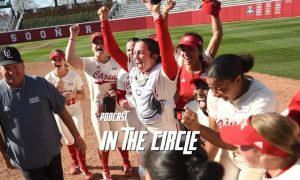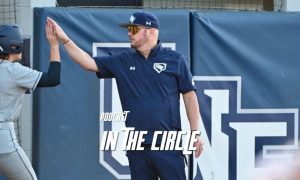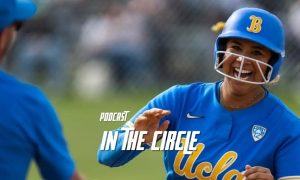The 2017 college season is just around the corner. FPN wanted to look at Ivy League Softball. Many teams already have their countdowns started which are creating an eager buzz among the softball community. Who will you be paying attention to this year? Much of the softball coverage and spectator’s eyes will be shifting focus between the SEC, PAC 12, ACC, and B1G. It makes sense since most of the projected Top 25 teams will come from those conferences.
When you ask a young softball player today what their dream school is, it wouldn’t be uncommon for their answer to be a school in the SEC. The SEC over the years has become commonly known as the “top” softball conference. Taking down a SEC team during pre and post season is like winning the world series for schools competing in smaller conferences.
One conference that slips under the radar each year is the Ivy League. In 2016, Princeton was the only team from the Ivy league to make a postseason appearance.
The Ivy League consists of eight private institutions: Dartmouth, Harvard, Penn, Princeton, Brown, Yale, Columbia, and Cornell. All eight institutions are located in the North East, United States. The Ivy League, known for higher education is prestigious and highly selective with a six to sixteen percent acceptance rate at each University. Not to mention, there are no athletic scholarship opportunities in the Ivy league. Academic scholarships and financial aid are awarded on a “need-based” assessment.
“No scholarship money? No thanks.” People are quick to write off the Ivy League due to the lack of scholarship funding, the competitive acceptance process and the rumored “heavy” academic load. The intimidated course load didn’t scare Alyssa Jorgensen, a current senior softball player at Dartmouth.
Alyssa Jorgensen a Texas native, verbally committed to the University of Houston her freshman year of high school. It was her junior year of high school when she realized she may have jumped the gun on her college decision. “I was way too young to make that decision, I couldn’t even drive a car yet,” she laughed. “I realized softball wasn’t my whole world at that point. I loved softball, but I also loved school, music, and writing. I wanted something more multidimensional and I didn’t want softball to be my entire identity.”
The typical Division I college softball experience is structured around school, softball, and what’s left will make up the social life. The truth is that there isn’t much time for anything else because school and softball come first since athletes are employed by the University. “We consider ourselves Voluntary Athletes in the Ivy League since the school isn’t giving us money. We love our sport and we don’t have to be there every day, we want to,” remarked Jorgensen.
With a similar softball load as other Division I softball conference schools, Jorgensen, and her teammates spend most of their time in the library and almost all of their down time on travel trips studying and getting ahead on their academics. This isn’t a requirement by the coaching staff, but something that the team members take upon themselves to hold each other accountable. Jorgensen, along with most of her teammates is a member of a sorority on campus and is able to balance her double major academic load, softball, and her social group.
Another difference between the Ivy league and a public University is the red shirt policy. In the Ivy League, athletes lose one year of eligibility for every year they are enrolled. Whereas at public institutions, athletes lose one year of eligibility for every year they compete in a sport.
Alyssa Jorgensen has called Dartmouth home for the past four years. When thinking about the people she has met among the campus walls, Jorgensen describes her fellow peers as “a group of individuals with a wide range of passion, and that passion is brought out through our academic experience.” She went on, “It challenges you in every way possible, and everyone here is intellectually charged.”
College softball only lasts four years. The people you meet, the relationships you make, the classes you take, the life skills you develop, and what you learn will stay with you for the rest of your life. It is not uncommon for students who attend an Ivy League Institution to have a full-time job lined up for them before they even graduate. This often occurs because of the tight-knit and active Ivy alumni involvement as well as other Ivy League resources.
The Ivy League offers much more than just a college softball experience. When looking at colleges, be sure not to get caught up in the softball scholarships and program’s Women’s College World Series appearances. What’s really going to matter after your four years are over? The number of Championships your team won or getting a degree in a field of study that interests you and puts you on the right path towards your future career?
Feature Image courtesy of Dartmouth Athletics








